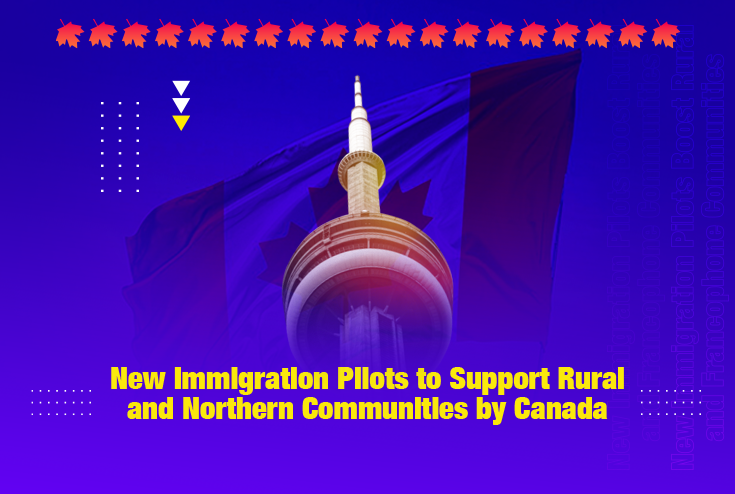
New immigration pilots to support Rural and Northern communities by Canada
Overview:
The long-term prosperity of Rural and Francophone minority communities in Canada depends heavily on regional immigration, which also helps to bolster these regions' economies. Specifically, the Rural and Northern Immigration Pilot (RNIP) has been effective in matching employers and companies in isolated areas with the skilled immigrants they require to prosper.
In the fall of 2024, the Rural Community Immigration Pilot will get underway. Its goal is to guarantee that programs that alleviate labor shortages and assist local businesses in finding the labor they require will still be available to rural regions. For those newcomers who wish to settle down in these smaller areas permanently and can contribute to bridging the urgent labor deficit, it will offer avenues to permanent residence.
It’s stated that the Francophone Community Immigration Pilot will be also started in the fall of 2024 as part of our Francophone Immigration Policy, which is modeled after the RNIP's success. For the communities that will take part in the pilots, the IRCC will start the community application process this spring. More information will be released in the upcoming months.
In the process of making RNIP a permanent program, these new pilots will support the linguistic and economic vitality of rural and Francophone minority communities by drawing and keeping competent international workers.
“Rural and northern communities face unique economic and demographic challenges. However, through the RNIP, rural communities have been able to attract and retain skilled workers that they’ve needed for years to ensure their economic growth. That is why we will make RNIP a permanent program, and why we are introducing these two new pilot programs. We’ll continue to work closely with these communities, as we work to connect businesses with the skilled workers they need to thrive.” – The Honourable Marc Miller, Minister of Immigration, Refugees and Citizenship
Which College Locations Shall We Apply For RNIP?
Cambrian College: Sudbury, ON
Northern College: Timmins, ON
Sault College: Sault Ste. Marie, ON
Confederation College: Thunder Bay, ON
Lakehead University: Thunder Bay, ON
Saskatchewan Polytechnic: Moose Jaw, SK
Quick Facts:
As of December 31, 2023, 4,595 newcomers received permanent residence through the RNIP, helping address labour shortages in key sectors such as health care, accommodation and food services, retail, manufacturing, scientific and technical services.
On February 21, 2024, IRCC extended the deadline for current RNIP communities to recommend candidates for permanent residence until July 31, 2024. IRCC also increased the number of candidates that communities can recommend. These changes allow participating communities to take part in the pilot for a longer period and continue meeting their labour needs with skilled candidates.
On October 31, 2023, IRCC released An Immigration System for Canada’s Future—a report that lays out a pathway to strengthen our immigration system to better meet the needs of our country and of newcomers. As part of the work to implement the actions identified in the report, IRCC continues exploring opportunities to enhance regional immigration, including through the Rural Community Immigration Pilot.
The Francophone Community Immigration Pilot delivers on IRCC’s commitment in the Policy on Francophone Immigration’s 2024–2028 Implementation Plan to include new Francophone communities targeted by regional economic immigration programs, where employers and the community have a role in selecting newcomers for their area. This pilot will also contribute to meeting the Government of Canada’s ambitious targets for French-speaking immigrants, as outlined in the 2024–2026 Immigration Levels Plan.




